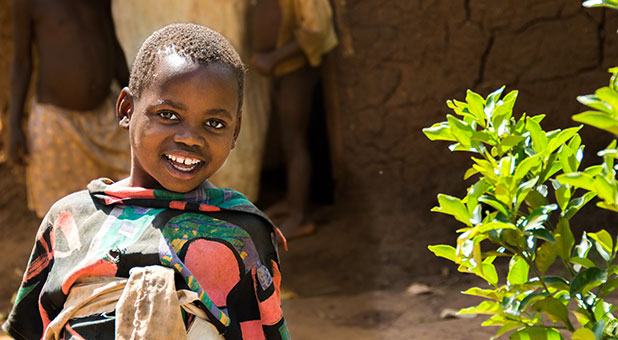Located 96 miles northeast of Gulu, Kalonga is a rural Ugandan village with 3,000 families comprised primarily of farmers earning less than $1.50 per day. Every day brings with it a singular struggle to survive, leaving no room for concern about the future. Children in the village have no opportunity for education, which perpetuates the cycle of poverty, and the village has no clean water source, which leads to rampant water-borne diseases.
Furthermore, the one medical clinic in the area is not only overrun by the suffering in the village, but all too often, doctors at the clinic sell government-provided medications to private pharmacies to better their own lives, forcing needy parents to purchase medicines at incredibly inflated prices when they should receive them for free.
Without the financial means to pay for medicine, parents must leverage future crops, leaving them without enough food to feed their children.
This cycle becomes their reality. Parents have to decide whether to provide food or medicine for their children each and every day.
But Impact Nations, a Christian nonprofit that seeks out the most vulnerable in the developing world to bring practical and supernatural expressions of God’s hope, has selected Kalonga as its next place of impact.
In three phases designed to completely transform the village, the organization endeavors to change the cycle of despair and futility into one of hope, resilience and joy.
The group has raised over half of the funds needed for phase one. To date, 25 percent of the needed water filters and three rainwater tanks have been installed, a solar power system has been built at the Hope and Care School, and a 15-acre farm has been secured. Additional phase-one projects include purchasing farmland and livestock to provide ongoing income for single mothers and widows, as well as helping to fund partner schools.
Phase two includes an effort to build classrooms and train teachers at the Hope and Care School, training citizens in farming and gardening, providing vocational training for widows and single mothers, and training community health leaders. The third and final phase will introduce a community medical clinic, build homes for orphans and establish microcredit and entrepreneurial programs for businesses.
Impact Nations is committed to not only seeking to meet the immediate needs of a community, but also to assisting in the creation of sustainable businesses as well as schools, clinics and churches so the region can end the cycle of poverty from within. This internal change causes a ripple effect that discourages corruption, decreases opportunities for trafficking, and allows for a sense of peace, personal pride and security to flourish.











































